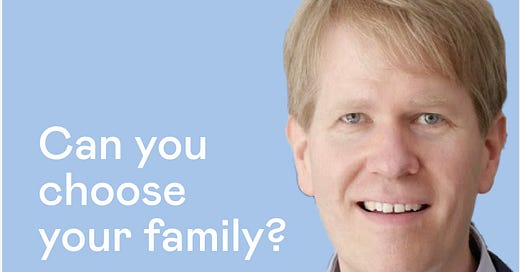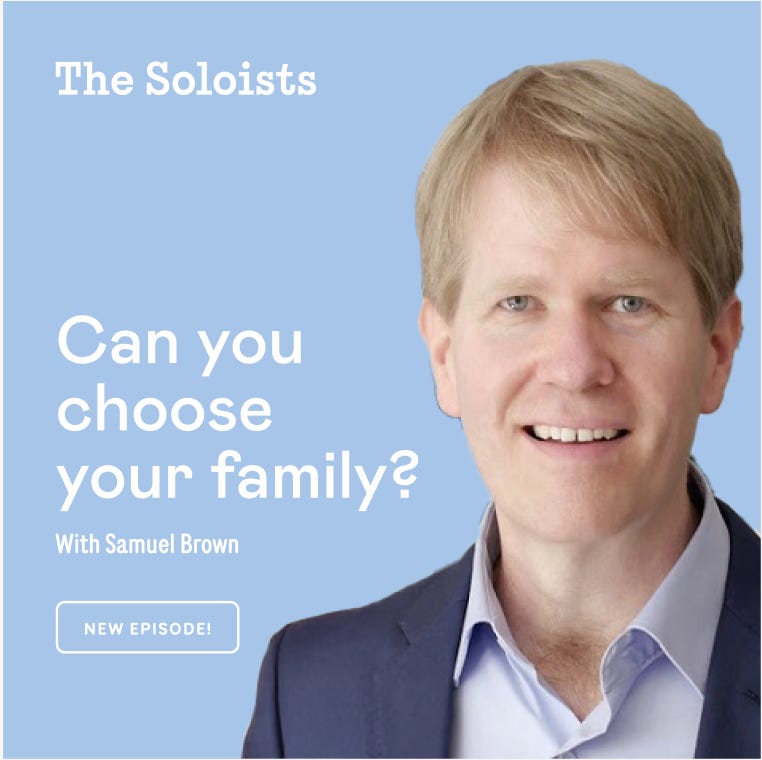We’ve been looking forward to a conversation on “chosen families” for a long time. The concept is especially meaningful to those whose relational support doesn’t take the shape of a traditional family, but who experience deep intimacy, growth, and loyalty within other “relation-shapes.” Historically, this has included LGBTQ individuals as well as the unmarried. As one listener recently said to us, “singleness allows opportunities to establish some of the best friendships-- so many of my best friends I've had along the way have been my fellow single ladies.”
Yet there are many reasons the idea of chosen family receives pushback — namely, as we explore in this episode, the suspicion that if relationships are built on preference and positive vibes they will likely not survive the grief and interpersonal friction that family life requires. One writer even suggests that chosen family can scan as “another means of self-branding, self-curation, exclusion — a cynical shorthand for establishing worth through association, without the baggage or responsibilities associated with “real” family.”
Thus, the question: can we really choose our families, or does real family depend on something beyond the scope of our choosing?
We dig into all of this with doctor and writer Samuel Brown, whose study of the restoration’s “adoption theology” insists that family must embrace both chosen and unchosen aspects of life. As he wrote in a 2013 article Believing Adoption, “Perhaps that sometimes desperate dance between the chosen and the inescapable is part of the work of making us divine.”
This conversation of was a thoughtful and gritty deep dive into restorationist understandings of the family, ways we could better live up to its possibilities, and how to respond when family life takes us to our breaking points. We were also honored to hear Sam share about the harrowing grief following his wife Kate’s passing, which you can read more about from his piece in Wayfare.















Share this post